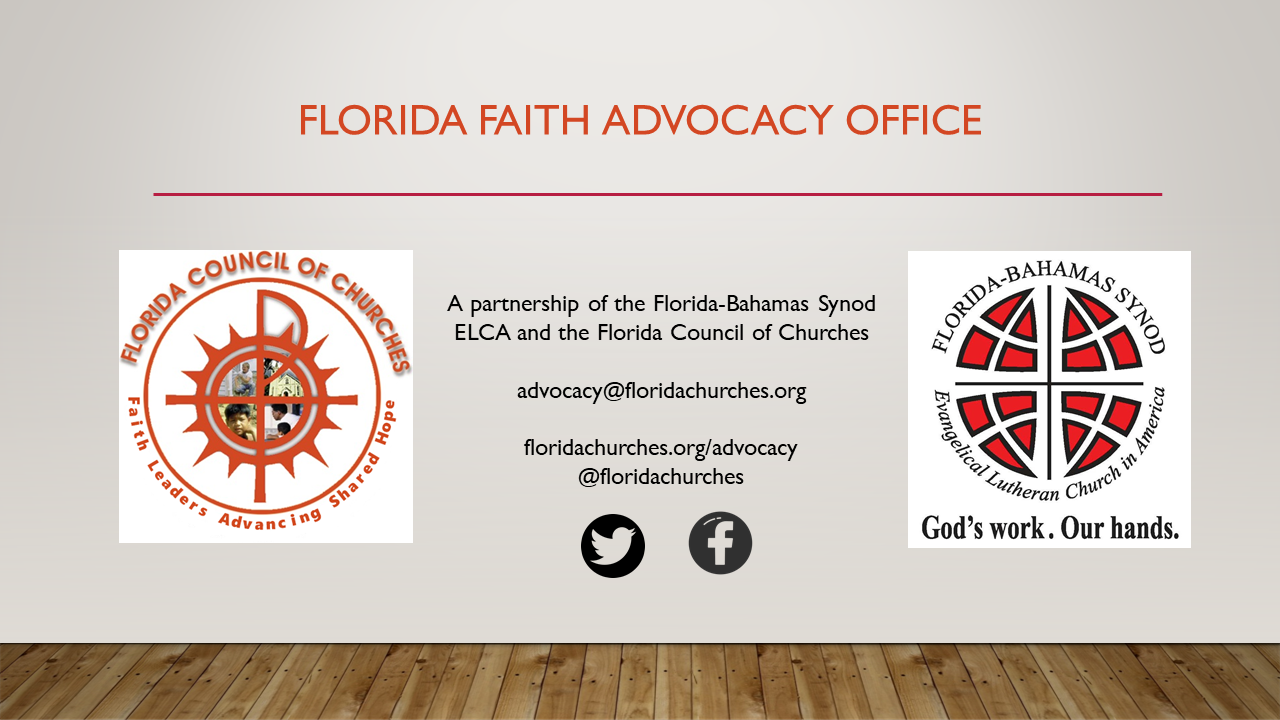Florida leads the nation in exoneration of innocent persons sentenced to death at 27 since 1973. More than half of them are Black – an indisputable sign of racism working in the state criminal justice system.
We’ll spend close to a billion dollars trying to execute the nearly 350 on death row, while the courts reduce or set aside many of death sentences because of legal irregularities or mental impairment of the defendant.
Think how many lives could be saved and changed for the better, preventing murder, if that billion or so dollars were spent on quality of life issues – mental health, early childhood, abuse prevention, family development. Instead, Florida politicians seem trapped in an old movie script, claiming executions are a deterrent and relieve victims’ families. Except, murders rates are lower where there is no death penalty. After the initial conviction, it takes 20 years or more before all appeals and courts reviews clear the way for a death warrant. Victims’ families relive the traumatic moment of their lives over and again. The death penalty provides no peace along the way, even if it is eventually carried out.
The constitutional challenges to the death penalty increase with every temporary fix. The drugs used become unobtainable. But the state continues to pour taxpayer money down the drain of death.
Two-thirds of the world has discontinued the death penalty. The United States stands alone as a democracy that still uses it, along with authoritarian regimes. The Bible Belt should not also be known as the Death Belt. Scripture restricts retaliation,, the New Testament urges forgiveness, and the church began with an ethic of nonviolence. History is bending its moral arc towards life, not death. We can protect society with imprisonment, and we should discontinue executions as emotional, irrational, and immoral acts of the state. The governor’s legacy will ride in part on ending the use of the death penalty in Florida.
Dear Governor Rick Scott,
The death penalty in Florida has a limited future because of the compelling moral, economic, and legal reasons for preferring imprisonment as the means to protect society. As faith and community leaders, we encourage you to issue a moratorium on executions as part of your legacy as the Governor of Florida.
Deterrence and victims’ rights are the primary reasons given for using the death penalty. Capital punishment is not a deterrent to murder. The Northeast region of the US has both the lowest murder and execution rates, while the South has the highest. If the death penalty prevented murders, we would expect opposite. Many of those on death row have histories of mental impairment, so the death penalty’s lack of deterrent effect should not come as a surprise.
The public compassion for families of murder victims is profound, and we should provide care and support to them. For the well-being of these families, Florida should not seek capital sentences that require 10, 20, or more years of court hearings, without any certainty that an execution will actually take place. This system forces victims’ families to repeatedly relive often the most traumatic experience of their lives. No one wins in this system.
The moral objections to the death penalty are substantial. Executing those who commit murder requires us to commit the same act we are punishing. God does not require the state to take the life of any person. The moral duty of the state involves protecting the public and restraining wrongdoers, which it can do without resorting to capital punishment.
As faith and community leaders, we must question the disparities in the application of the death penalty. Of the over 155 persons exonerated nationally since 1973, Florida leads the nation with 27. Of the Florida exonerees, 15 (or 58%) are Black men. The racial bias in Florida’s criminal justice is widely documented. Using the death penalty under such circumstances is not to be tolerated or condoned.
The cost of the death penalty and executions is substantial. Florida must re-sentence a sizable portion of its death row inmates to meet court requirements, at an estimated expense of up to a million dollars or more for each death re-sentencing attempt. Constitutional challenges may eventually require most of those currently on death row to be re-sentenced. If death sentences are again sought, at a minimum, the total cost is over 100 million dollars and could reach more than a quarter of a billion dollars. This is in addition to the estimated $50+ million that Florida spends every year trying to enforce the death penalty. Overall and over time, this could add up to billions of dollars. Such an enormous waste of taxpayer funds to seek death rather than enhance life is unjustified and lacks any moral warrant.
The recent unanimous jury legislation is a temporary fix to address the latest legal challenge to the death penalty, but more will arise. The constitutionality of previous non-unanimous convictions is being challenged. Lethal injection as an execution method faces continuing challenges both in court and simply in obtaining the drugs. Legal concerns over executing those with cognitive impairments increase as we better understand both brain science and traumatic abuse.
Worldwide almost all democracies have abolished the death penalty, and more than two out of three countries have abandoned its use. In the United States, three out of five states have either abolished the death penalty or discontinued its use. Moreover, when the public is presented with the option of life imprisonment without parole, polling shows they chose imprisonment over execution.
The cumulative weight of these arguments is significant. They show how the moral arc of the universe is bending towards a justice that values life and does not seek the death of anyone. Recognizing this moral arc by ending the use of the death penalty in Florida is a substantial legacy which history will look on with favor. You have the discretionary authority not to sign execution warrants. Our prayer and request is that you discontinue capital punishment during your tenure as the Governor of Florida.
Signed,

